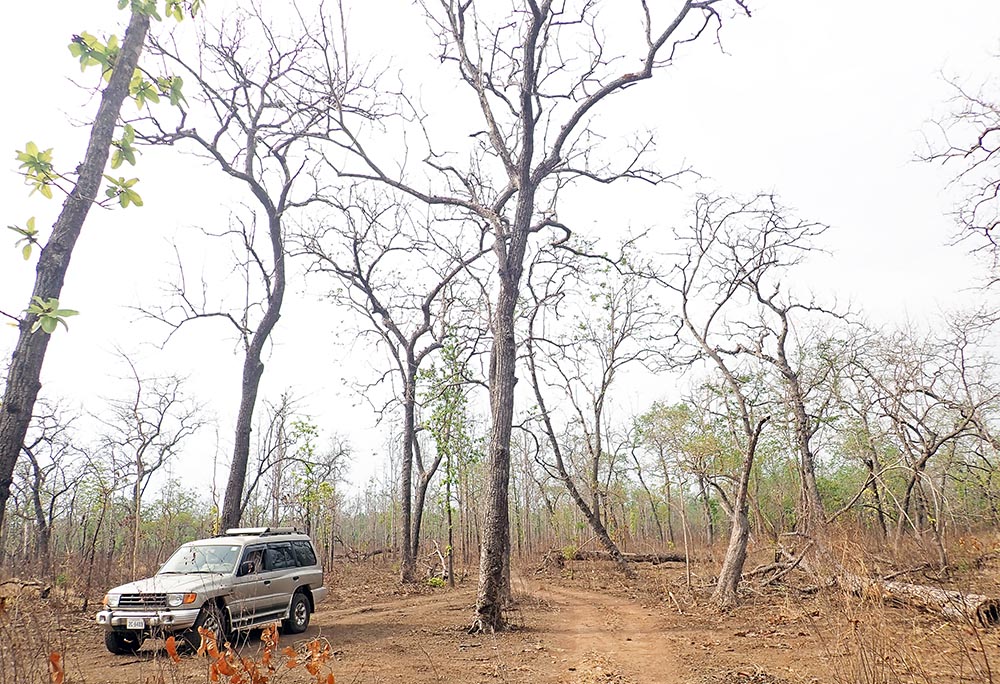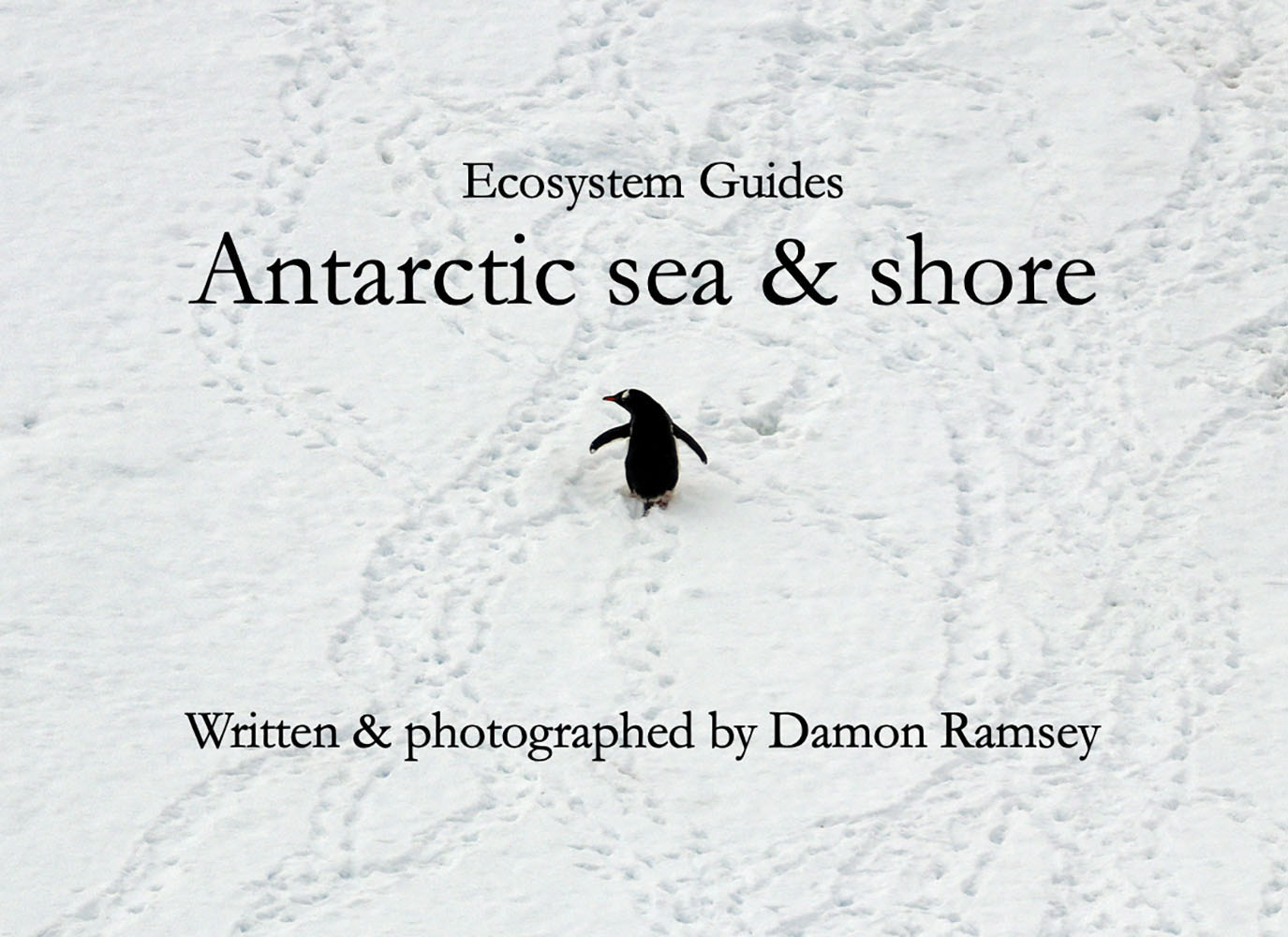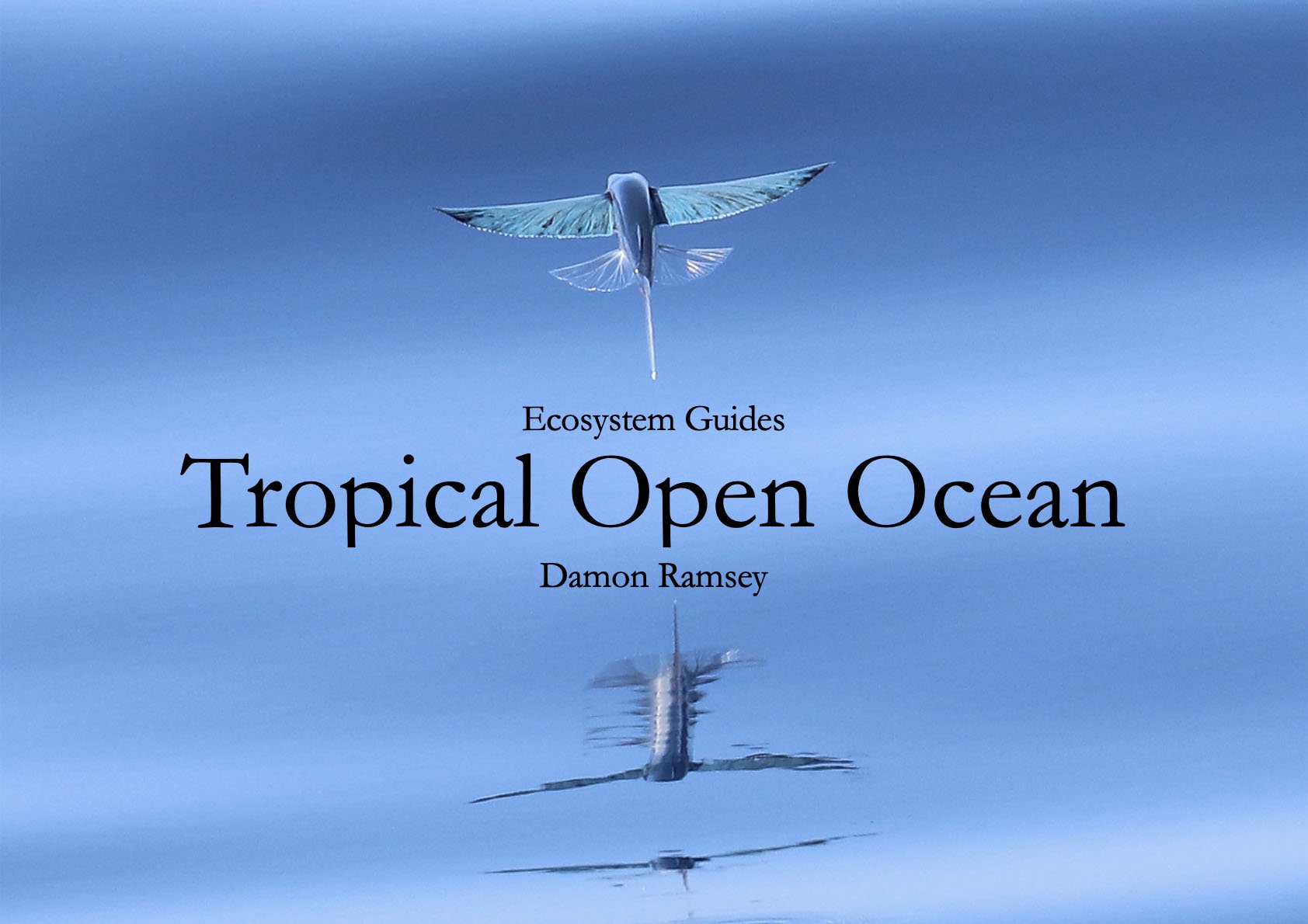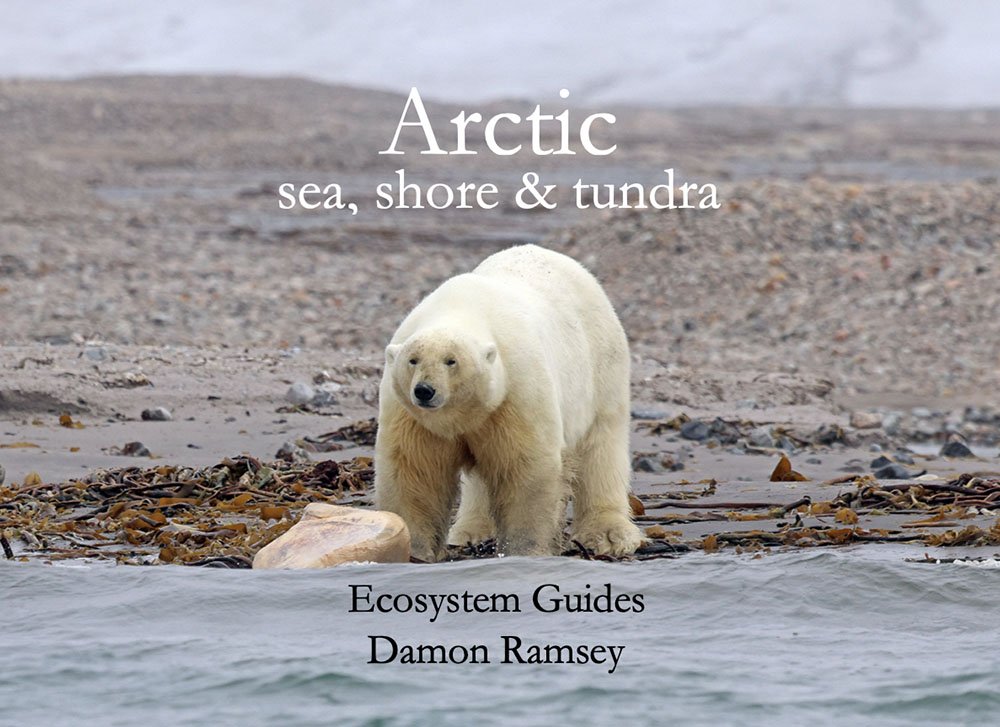ecosystem-guides.com
....exploring the planet's ecosystems
Kulen Prontemp
northern Cambodia
Kulen Prontemp is an area that protects an expanse of beautiful tropical deciduous woodlands, with several species of birds that are now quite rare. It is reported to be the largest protected area in Cambodia.
personal experience
I spent a week in northern Cambodia, including three days in this area specifically. The woodlands were fascinating and I would have loved to have spent more time there, but work commitments plus the daily expense of the car, driver and guides meant I had to keep it short.
mammals
It has been claimed that these woodlands once held the largest assemblage of mammals outside of sub-Saharan Africa. Today, this is not the case, with few mammals to be seen. The most common (and cutest) was the Cambodian Striped Squirrel, complete with fluffy white ears.
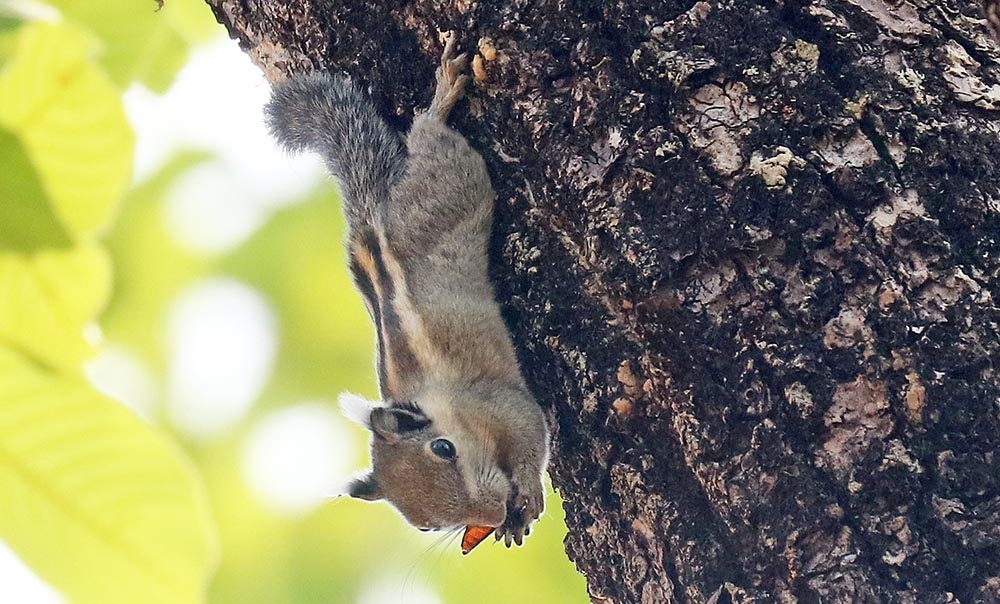 Cambodian Striped Squirrel
Cambodian Striped Squirrelthe birds
The main wildlife in the area are the birds. The Sam Veasna guides focus on birds, and target specific species. These target species include two ibis; the impressively big 'Giant Ibis' and the beautiful 'White-shouldered Ibis' . The White-shouldered Ibis is one of the rarest large birds in the world. They are only found in small restricted areas within south-east Asia. Cambodia is considered the main stronghold for the species, with perhaps a few hundred. Unlike most waterbirds, they tend to feed along the open forest floor, and occasionally on the edge of seasonal pools.
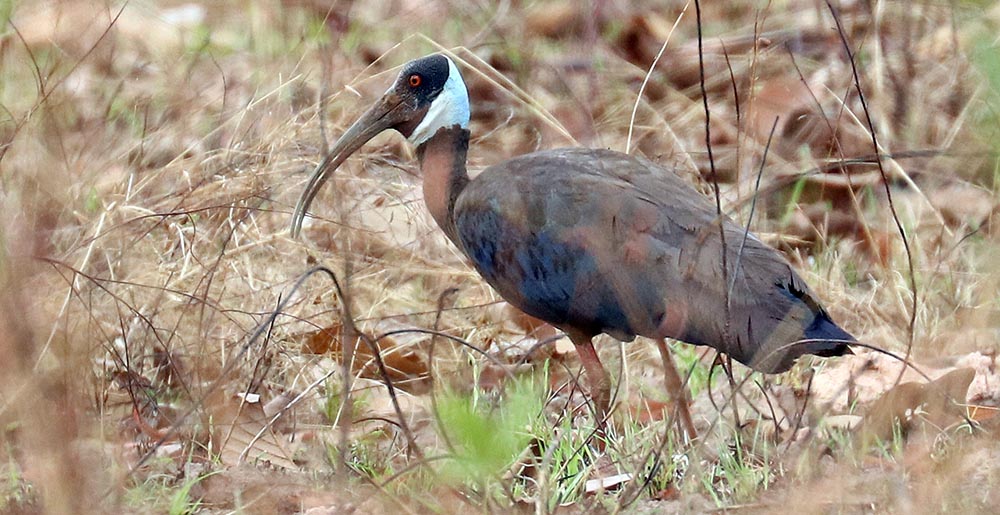 White-shouldered Ibis
White-shouldered IbisThere is a wide diversity of birds, including some that are widespread across tropical Asia, but also several others that are much more restricted.
The part of the avifauna I was most impressed by was the diversity of woodpeckers.
Your average person probably thinks of North America or Europe when they think of these birds, but, like most plant and animal groups, they are far more diverse in the tropics, and specifically, in parts of tropical Africa, the tropical Americas, and south-east Asia.
This part of south-east Asia is a hotspot for different species of woodpeckers of different sizes shapes and colours, and different niches...
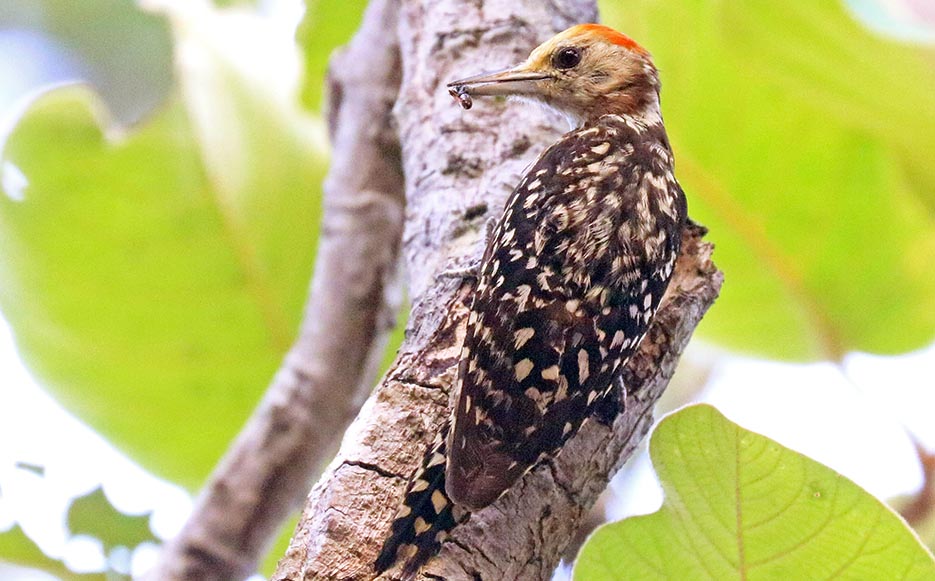 Yellow-crowned Woodpecker
Yellow-crowned Woodpecker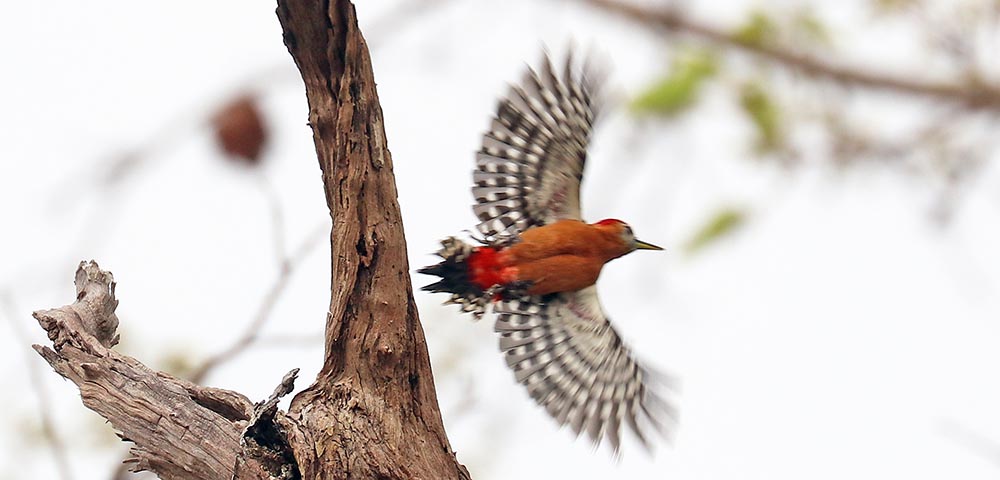 Rufous-bellied Woodpecker
Rufous-bellied Woodpecker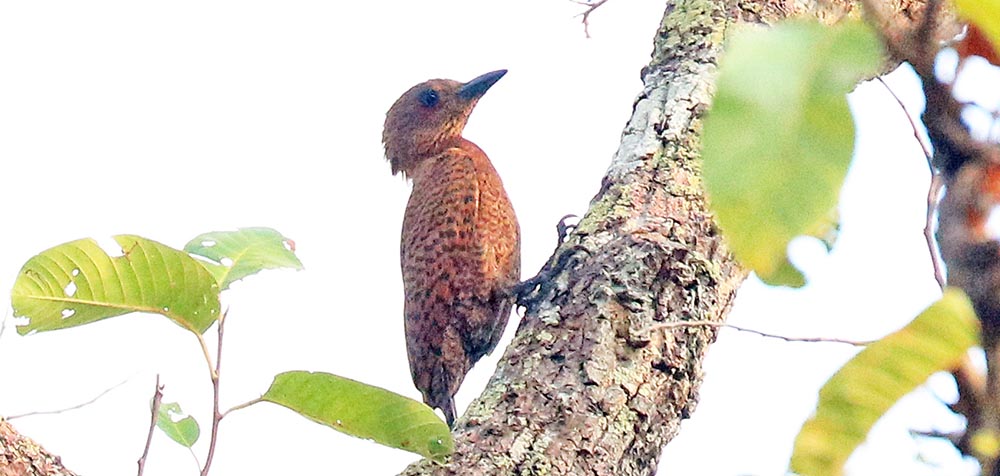 Rufous Woodpecker
Rufous Woodpecker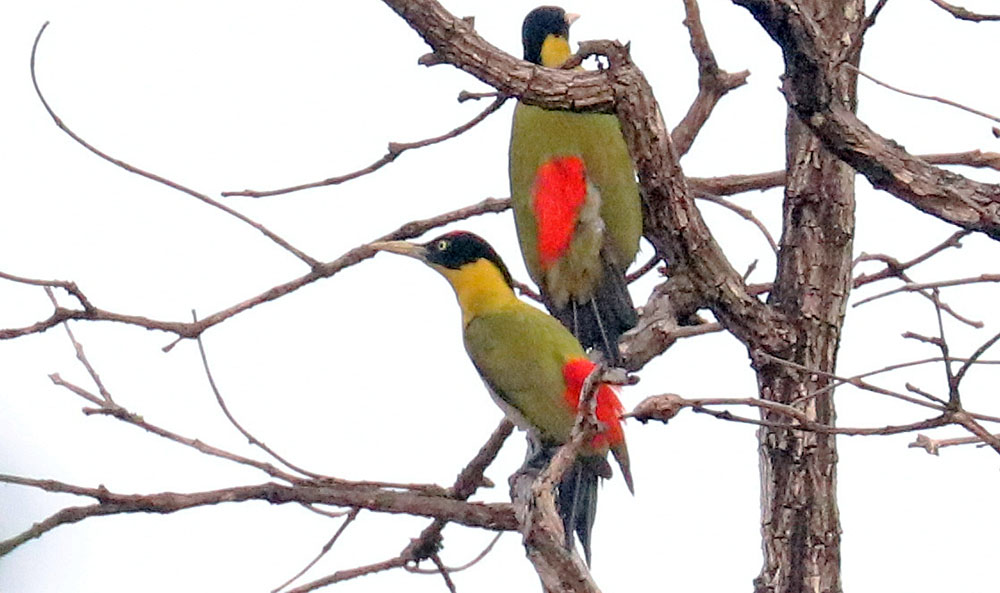 The Black-headed Woodpecker has beautiful colours, and in shape looks rather like an old world tropical Oriole.
The Black-headed Woodpecker has beautiful colours, and in shape looks rather like an old world tropical Oriole.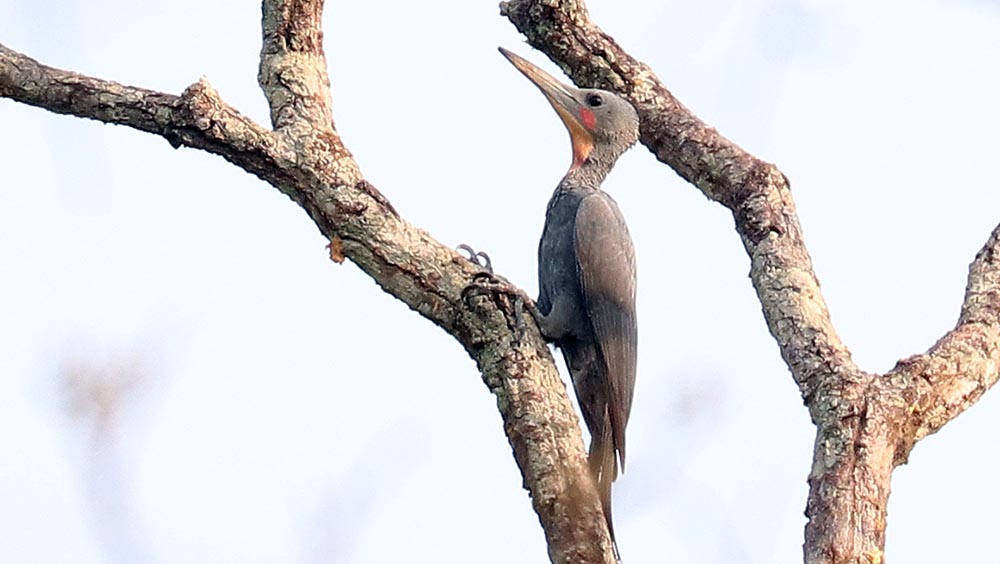 and the largest of all woodpeckers, the Slaty Woodpecker
and the largest of all woodpeckers, the Slaty Woodpeckerthe habitat
The forest here is called ‘Deciduous forest’ to distinguish it locally from the ‘Evergreen forest’. In other parts of the world, this would be known as Tropical Woodlands and Tropical Rainforest respectively.
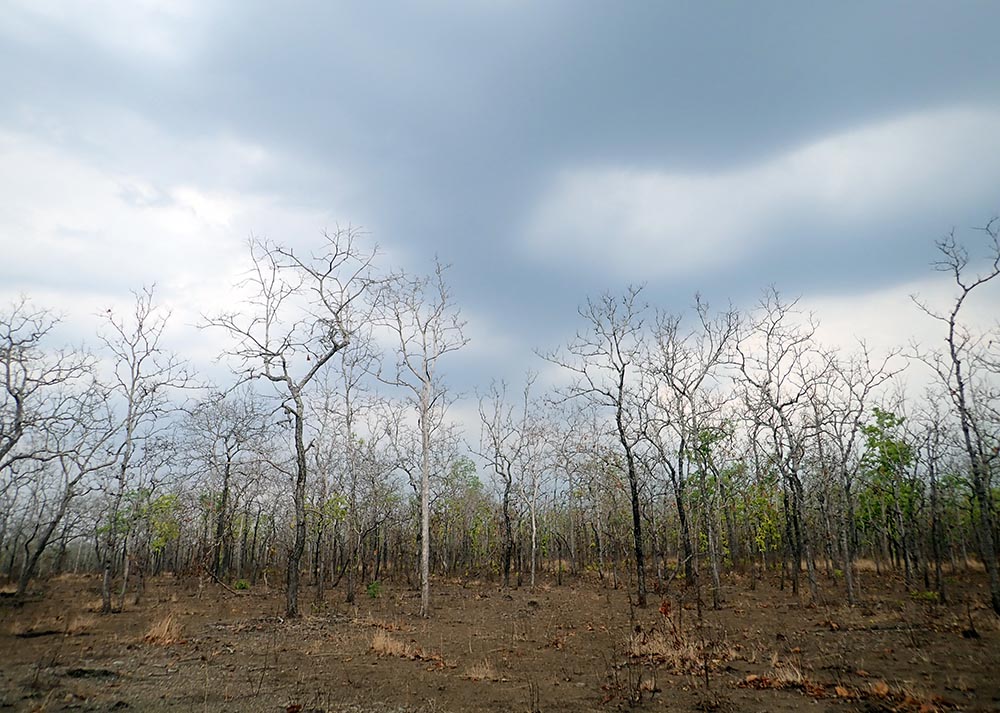
access
Access is difficult in this remote area. Most people that visit the area looking for wildlife go through Sam Veasna tours. I do not know of anyone else conducting tours there. When in the area on organized tours, most naturalists stay at Tmatboey Lodge.
